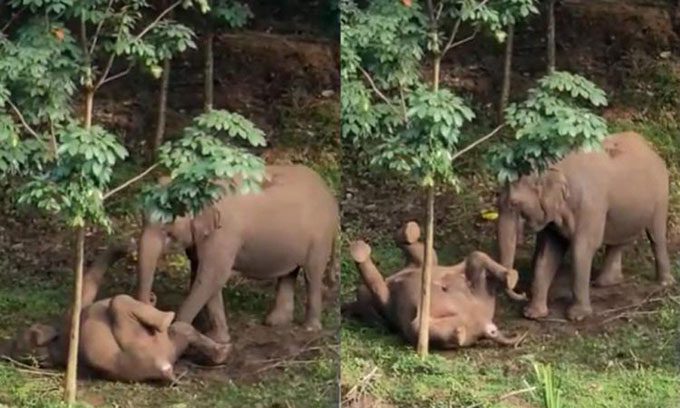Even after the herd had left, the mother elephant remained beside the body of her two-and-a-half-year-old calf for an additional hour, trying to wake it up.
A young elephant from the herd was electrocuted on the morning of November 16th while entering a farm area near Walayar Forest, Malampuzha, Palakkad district, Kerala. According to local residents, the herd had entered the farm the previous night and damaged the pump station. The calf met its demise after chewing on an electric wire.
Residents were awakened by the noise of the herd on the morning of November 16th. When they arrived, they saw the elephants pushing and gently nudging the calf to wake it up. As they shouted, the entire herd retreated back to the forest, but the mother stayed next to her calf’s body. She left after about an hour.
“It was a male elephant, only about two and a half years old. This area is close to the forest edge, and the herd entered the farm looking for food,” said Ashiq Ali, a ranger from Walayar Forest.
The encroachment of farmland into forest areas, which were once part of the “elephant corridor,” is widespread, according to Haridas Machingal, a member of the Elephant Lovers Forum.

The herd returned to the forest, but the mother remained beside her calf’s body.
“There are many farms here. Elephants frequently enter the farms and eat the crops. The electric fences that local farmers install to trap wild boars pose a threat to elephants,” Machingal stated. He believes that the Forest Department and the Kerala State Electricity Board (KSEB) need to collaborate to ensure that the electric fences are installed in compliance with regulations.
Asian elephants (Elephas maximus) are smaller than African elephants. Female elephants have a very long gestation period, lasting nearly 22 months, and typically give birth to one calf every 2 to 4 years. They live in herds with their young, while adult males often separate from the group.


















































